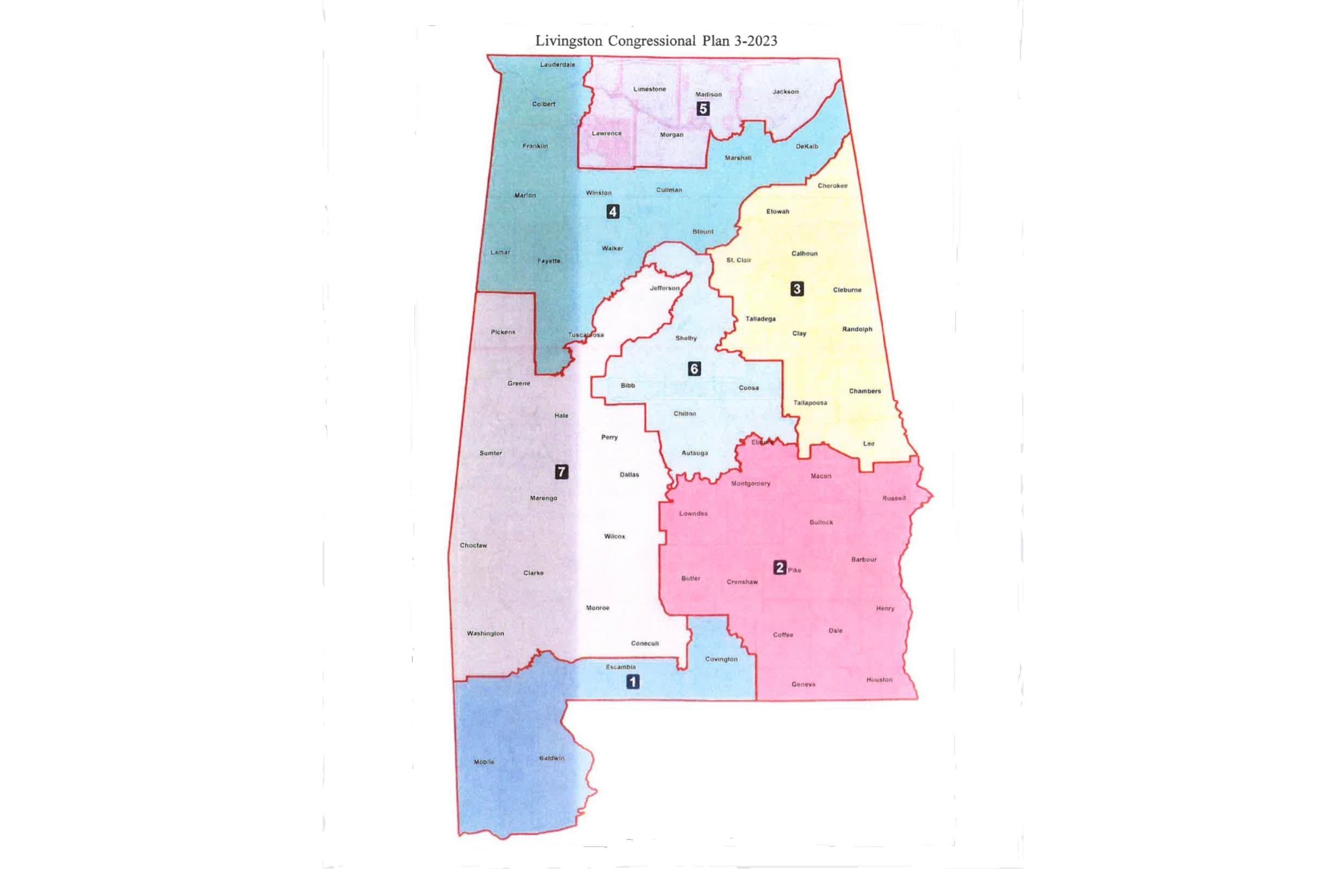MONTGOMERY — Gov. Kay Ivey signed a new congressional map into law on Friday afternoon.
A copy of the new map and demographic statistics by congressional district can be viewed here.
A three-judge panel in district court is scheduled on August 14 to decide whether they think the plan suffices or whether a court-appointed special master will redraw the map.
The congressional redistricting proposal passed the House and Senate with Republican support on Friday.
"If you think about where we were, the Supreme Court ruling was 5-4," House Speaker Nathaniel Ledbetter told reporters on Friday. "It was just one judge that needed to see something different. I think the move that we have and what we've come to compromise today gives us a good shot. We've showed significant movement in what we had and I think some of the things we did in the communities of interest and packing those districts like they had asked us to do more. That was in the Senate side I guess more than ours. I think both Pringle and Livingston did a good job in their chambers and they followed what their members wanted."
State Sen. Andrew Jones (R-Centre) told 1819 News he appreciated that the plan ultimately kept Etowah County whole in the 3rd Congressional District after being split between districts in a previous proposal earlier in the week.
"This map is more compact than any other map presented, minimizes county splits, keeps all of the historically black belt counties in two districts, and keeps communities of interest together," Jones said.
The U.S. Supreme Court upheld with a 5-4 vote in June a lower court's decision to require the Alabama Legislature to redraw their congressional districts passed in 2021 to include a second majority-black congressional district or a district with a high enough black voting age population where a minority representative could possibly be elected.
"Following the U.S. Supreme Court order, I called the Alabama Legislature into a special session to readdress our congressional map. The Legislature knows our state, our people and our districts better than the federal courts or activist groups, and I am pleased that they answered the call, remained focused and produced new districts ahead of the court deadline," Ivey said in a statement after signing the proposal into law.
Alabama's seventh congressional district is currently the only majority-black congressional district in Alabama. It is held by U.S. Rep. Terri Sewell (D-Birmingham).
Democrats opposed the plan because they said a 40% black voting-age population in the second congressional district wasn't a high enough percentage to elect a minority congressman.
The map was similar to a previous map introduced earlier in the week by State Sen. Steve Livingston (R-Scottsboro). However, the final version wasn't unveiled to the public until a conference committee meeting around noon on Friday.
"We were handed the map and told vote for it and everyone else in the room was told don't vote for it," State Rep. Chris England (D-Tuscaloosa) said on the House floor. "It is the, I've been trying to keep up with all the people who may have had a part in this, the Pringle-Livingston-Wahl-Brown-Marshall…I heard Tommy Tuberville called a couple people so Tuberville plan, McCarthy plan. It's the Republican plan. It's not from us. It wasn't generated here. It wasn't a plan that we all had a part in. Literally people still don't know what district they're going to be in when the congressional map is adopted."
A spokesperson for Alabama Attorney General Steve Marshall told 1819 News on Friday the map was fair and they hoped the Plaintiffs will support it.
"The Legislature's new plan fully and fairly applies traditional principles in a way that complies with the Voting Rights Act," the Attorney General Office's spokesperson said. "Contrary to mainstream media talking points, the Supreme Court did not hold that Alabama must draw two majority-minority districts. Instead, the Court made clear that the VRA "never requires adoption of districts that violate traditional redistricting principles." The Court's problem with the 2021 Plan was that it appeared not to apply those principles evenly by keeping together the community in the Gulf, but not similarly prioritizing the community in the Black Belt. The 2023 Plan fully addresses that concern by uniting the Black Belt counties better than even Plaintiffs proposed plans, while also keeping together Alabama's Gulf community. This is a fair map that complies with § 2, and we hope the Plaintiffs will support it."
Matt Clark, Alabama Center for Law and Liberty President, said, "I think under the Supreme Court's governing precedents, this map will have a chance at being upheld."
"The new map does not create a second majority-minority district. If the ACLU wants to sue again and argue that such a district must be created, it will have to prove that the white majority will act as a bloc to defeat the minority's preferred candidate," Clark told 1819 News on Friday. "In district 2, although there's still a white majority, I think there are lots of white liberals in the Montgomery area that aren't guaranteed to vote Republican. The ACLU will have to argue with a straight face that all those white liberals in Montgomery will be guaranteed to vote against the black minority's preferred candidate, but I don't think they can prove that. If they can't, then the map should be upheld."
To connect with the author of this story or to comment, email caleb.taylor@1819News.com.
Don't miss out! Subscribe to our newsletter and get our top stories every weekday morning.










